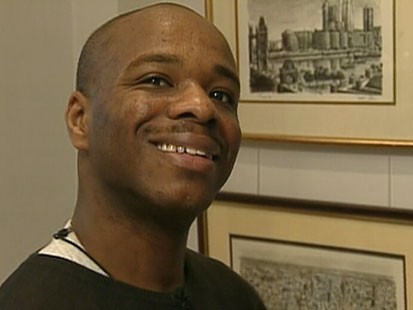
Posted on 02/13/2008 10:29:20 AM PST by Sleeping Freeper
With all the struggles that come with being autistic has also come an incredible gift for British artist Stephen Wiltshire — he can draw in extraordinary detail from memory.
After standing in London's Piccadilly Circus for just 10 minutes, ABC News correspondent Nick Watt asked Wiltshire to draw it from memory. It took him a little more than an hour. He drew without stopping. In the end Wiltshire's image was almost exact in every detail.
At age 3 Wiltshire was diagnosed with autism. Though mute and withdrawn, he demonstrated a natural talent and active interest in drawing.
Wiltshire uttered his first words only after his teachers at school temporarily took away his art supplies.
"I want paper. Please can I have a paper please to draw," he said.
(Excerpt) Read more at abcnews.go.com ...
If the spirit can't express itself in the usual way, it often finds a way around. Many profoundly handicapped people have amazing talents that (as it seems to in this case) make them happy.
God bless this young man, he seems to have found something that makes him happy and can support him in life.
I remember many years back about an autistic guy. His mother heard music playing and thought she left the radio on. Here her adult son is playing piano and singing, after never touching the piano before. God gives us all gifts.
One of my wife’s clients suffers from similar ailments, and has the ability to draw maps. If you name a nation, he can draw a map of it in excellent detail.


What part does he use to hole the pen/pencil? The brain stem? (I really dislike stupid copy editors!)
Some of them are incredible artists, musicians, mathematicians, it never fails to amaze me either.
Ping!
This kid is wired differently. This is a fairly extreme case, but people who are geniuses in one facet of life are often completely inept in others, like social skills, simple cleanliness, or tying their shoes?
Which raises an almost existential question: would you rather be an average, happy, Joe Schmo, or a brilliant, tortured, Van Gogh?
An autistic kid in my daughter’s first grade class could do this.
Check out this link - he draws a map of Rome after flying over it in a helocopter....
http://www.youtube.com/watch?v=jVqRT_kCOLI
Hold?
What's your problem with the headline as written? You could argue that the preposition should have been "from," but "draws from" would be even more ambiguous.
If you're going to rail on stupid copy editors, you really shouldn't be asking what he uses to hole the pencil. And you should know that memory does not reside in the medulla.
I’d like both wih an A/B switch please.
I'd argue that he succeeds not in spite of his handicap, but because of it. All of his brain is focused on the one thing.
Oh, man, how I wish it worked like that.
In college I took a cognitive science class by a professor who researched human memory systems, and had done some studies of autistic patients. He had a particularly good explanation of how these autistic people develop such phenomenal capabilities.
He argues that there is nothing superhuman or magical about them. If a “normal” human being were to spend as much time, energy, and focus as they do on developing certain abilities, such as the ability to draw from memory or to perform multiplication in your head, the person would be able to achieve the autistic’s level of skill easily. He had numerous studies that lent support to this statement - studies primarily involving measuring how much devotion (time, effort, etc.) an autistic patient spent on their task of choice, measuring the devotion of a healthy practitioner of that task, and comparing relative proficiencies in said tasks versus the degrees of devotion. Autistic patients did not come out on top.
However, part of being a “normal” human being is the ability to tell when you’re devoting too much time and attention to something trivial or insignificant, or simply spending energy on one thing when you could be spending your energy better elsewhere. The mechanisms that trigger such reallocation of energy in healthy people include boredom, frustration, fatigue, or sometimes simply a “little voice” that makes you step back for a second and ask yourself, “Wait, why am I doing this?”
Being autistic means, in part, lacking these mechanisms. Autistics are able to develop such skills, in other words, because they don’t know that they don’t have to. :)
One of the most amazing videos I’ve ever seen... thank you for sharing.... “You can’t make this stuff up”...
Disclaimer: Opinions posted on Free Republic are those of the individual posters and do not necessarily represent the opinion of Free Republic or its management. All materials posted herein are protected by copyright law and the exemption for fair use of copyrighted works.